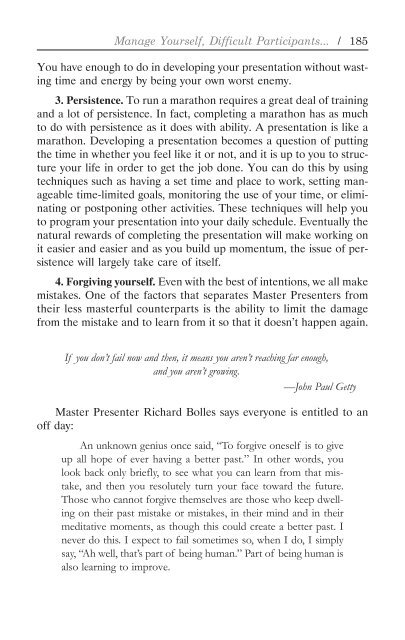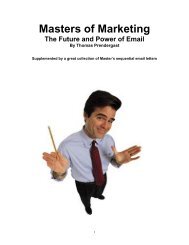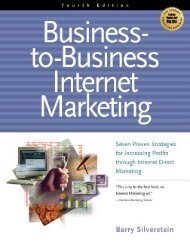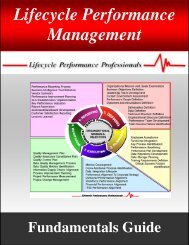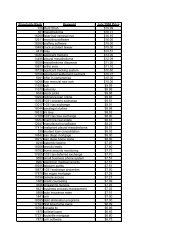The Seven Strategies of Master Presenters - Lifecycle Performance ...
The Seven Strategies of Master Presenters - Lifecycle Performance ...
The Seven Strategies of Master Presenters - Lifecycle Performance ...
Create successful ePaper yourself
Turn your PDF publications into a flip-book with our unique Google optimized e-Paper software.
Manage Yourself, Difficult Participants... / 185<br />
You have enough to do in developing your presentation without wasting<br />
time and energy by being your own worst enemy.<br />
3. Persistence. To run a marathon requires a great deal <strong>of</strong> training<br />
and a lot <strong>of</strong> persistence. In fact, completing a marathon has as much<br />
to do with persistence as it does with ability. A presentation is like a<br />
marathon. Developing a presentation becomes a question <strong>of</strong> putting<br />
the time in whether you feel like it or not, and it is up to you to structure<br />
your life in order to get the job done. You can do this by using<br />
techniques such as having a set time and place to work, setting manageable<br />
time-limited goals, monitoring the use <strong>of</strong> your time, or eliminating<br />
or postponing other activities. <strong>The</strong>se techniques will help you<br />
to program your presentation into your daily schedule. Eventually the<br />
natural rewards <strong>of</strong> completing the presentation will make working on<br />
it easier and easier and as you build up momentum, the issue <strong>of</strong> persistence<br />
will largely take care <strong>of</strong> itself.<br />
4. Forgiving yourself. Even with the best <strong>of</strong> intentions, we all make<br />
mistakes. One <strong>of</strong> the factors that separates <strong>Master</strong> <strong>Presenters</strong> from<br />
their less masterful counterparts is the ability to limit the damage<br />
from the mistake and to learn from it so that it doesn’t happen again.<br />
If you don’t fail now and then, it means you aren’t reaching far enough,<br />
and you aren’t growing.<br />
—John Paul Getty<br />
<strong>Master</strong> Presenter Richard Bolles says everyone is entitled to an<br />
<strong>of</strong>f day:<br />
An unknown genius once said, “To forgive oneself is to give<br />
up all hope <strong>of</strong> ever having a better past.” In other words, you<br />
look back only briefly, to see what you can learn from that mistake,<br />
and then you resolutely turn your face toward the future.<br />
Those who cannot forgive themselves are those who keep dwelling<br />
on their past mistake or mistakes, in their mind and in their<br />
meditative moments, as though this could create a better past. I<br />
never do this. I expect to fail sometimes so, when I do, I simply<br />
say, “Ah well, that’s part <strong>of</strong> being human.” Part <strong>of</strong> being human is<br />
also learning to improve.


